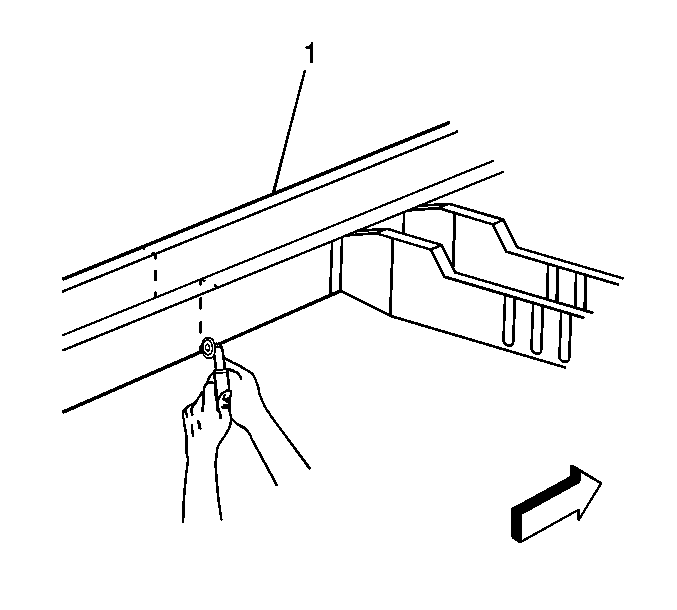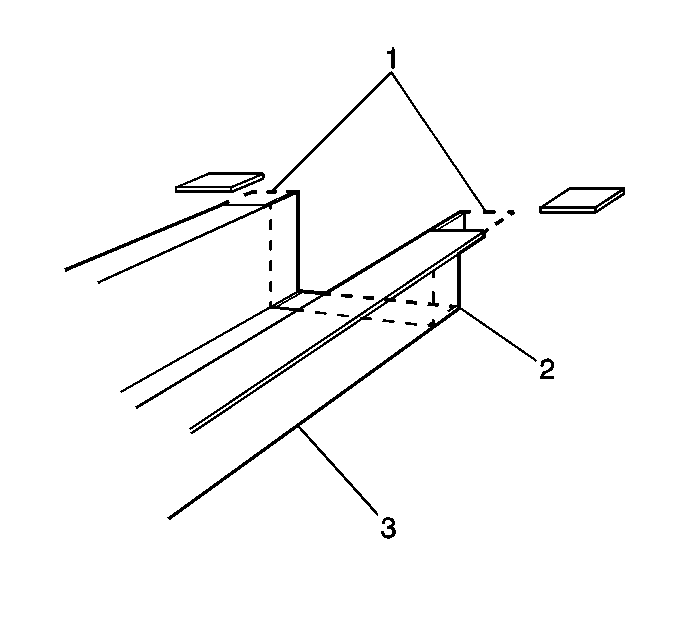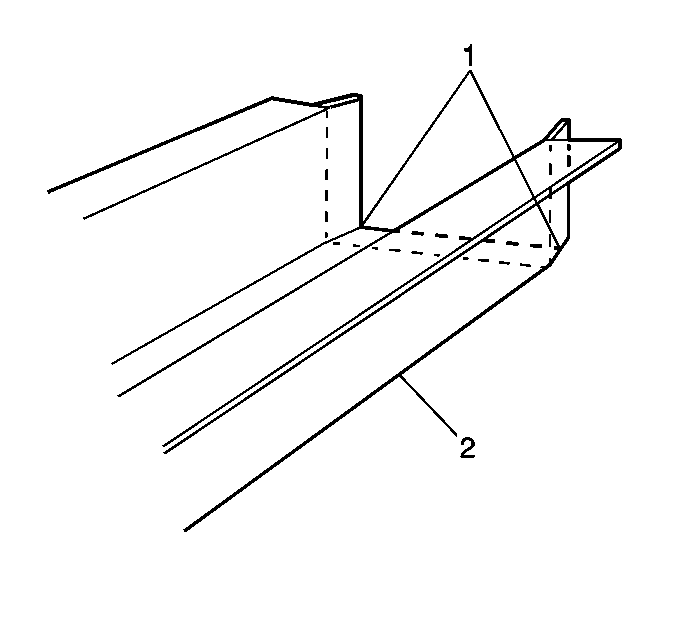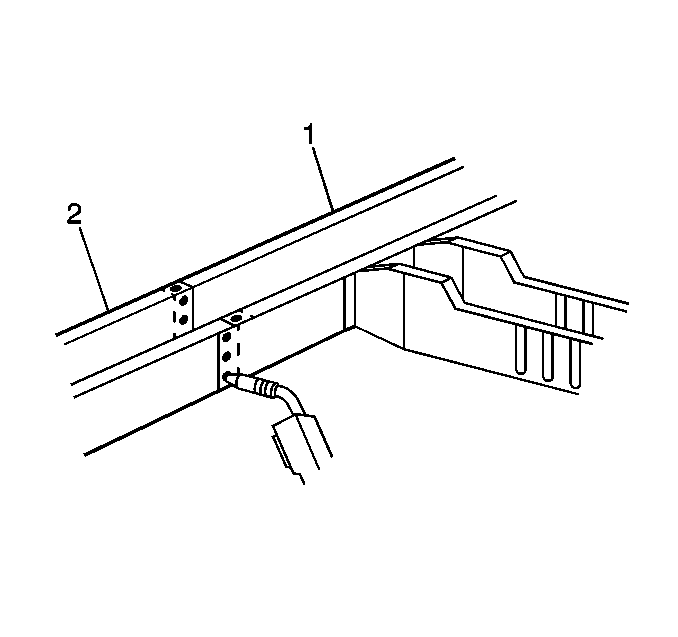Removal Procedure
Sectioning procedures can be used to repair the rear rail if just the portion rearward of the crossbar is damaged. The rails are manufactured with diemarks for sectioning location. Unique service parts are available for sectioning. The sub-assembly consists of the outer rail panel with the bumper mounting brackets attached.
Important: If damage exceeds the recommended area for sectioning and the rail cannot be straightened, the complete rail must be replaced.
- Remove all related panels and components.
- Visually inspect and restore as much of the damage as possible to factory specifications.
- Remove sealers and anti-corrosion materials as necessary.
- Locate, mark, and drill out all factory welds. Note the number and location of welds for installation of the service assembly.
- Locate the diemark in the rail.
- Use a straight edge to scribe a line around the rail.
- Mark and cut the damaged rail (1) accordingly.
- Remove the damaged section of the rail.

Installation Procedure
- Locate the diemarks on the service part.
- Measure forward to add 30 mm (1 3/16 in) to the service part length, and mark cut lines.
- Cut the service part and discard the unused portion.
- Cut and remove 30 mm (1 3/16 in) from the flanges on either side (1) of the service rail (3) to create 30 mm (1 3/16 in) tabs.
- Cut 5 mm (3/16 in) wide gaps in the bottom corners (2).
- Step the tabs inward to allow the service section (2) to fit inside of the original rail.
- Weld the tabs together along the edges (1).
- Clean and prepare the mating surfaces.
- Position the service part.
- Check fit with 3-dimensional measuring equipment.
- Plug weld accordingly.
- Stitch weld along the entire joint (2).
- Make 25 mm (1 in) welds along the seam with 25 mm (1 in) gaps between.
- Go back and complete the stitch weld. This will create a solid joint with minimal heat distortion.
- Clean and prepare welded surfaces.
- Prime with 2-part catalyzed primer.
- Apply sealers and anti-corrosion materials as necessary.
- Install all related panels and components.



Important: The bumper mounting holes must be properly located and drilled. Use three-dimensional measuring equipment.
Important: Prior to refinishing, refer to GM 4901MD-99 Refinish Manual for recommended products. Do not combine paint systems. Refer to paint manufacturers recommendations.
